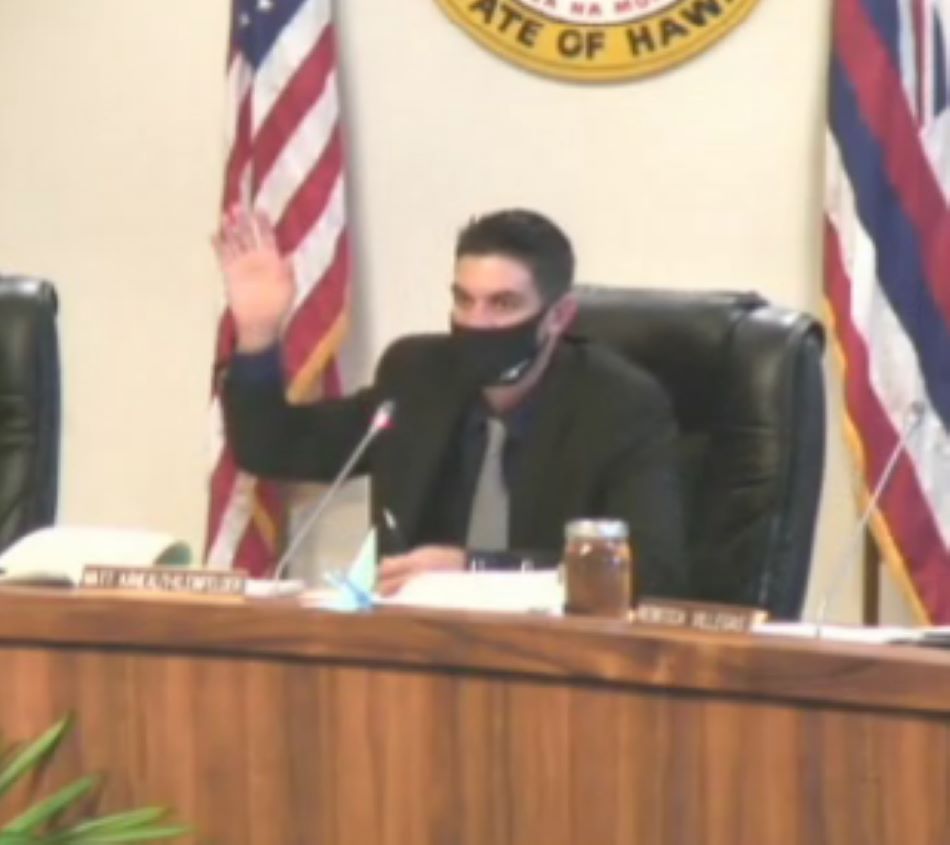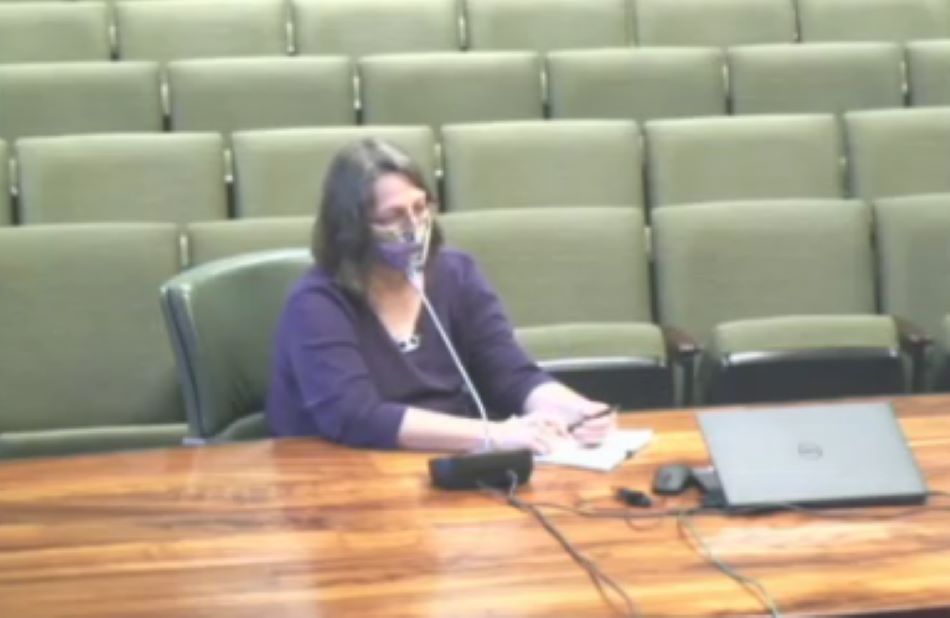County Council Moves Forward With New Homelessness Program
The Hawai‘i County Council on Wednesday during its regular meeting took the final step in creating a new fund that will allocate tax dollars to addressing homelessness on the Big Island.

The Council approved the second and final reading of Bill 111, which allocates no less than 75% of the property tax revenue collected each year from Tier 2 residential properties, or second luxury homes, with a value of more than $2 million. The funds generated by the new five-year program will be used for county-sponsored programs to address housing and homelessness.
The new ordinance will take effect July 1 and run through June 30, 2027. Based on the budget submitted March 1 by the county Finance Department, the program is estimated to generate about $9 million in the next fiscal year, according to county Finance Director Deanna Sako.
“This really is the starting point,” said Councilman Aaron Chung, who introduced the measure. “It was intended to recognize and establish a funding source.”
He hopes the program will foster collaboration between the county and agencies, service providers and other stakeholders that assist homeless people. And if it doesn’t work to the liking of the Council or the public, Chung said the program can be tweaked.
“Let’s just get this thing moving already,” he said.
Before voting on the bill itself, the Council approved an amendment to clear up language regarding the portion of the luxury home tax to which the 75% will be applied.
The county has two tiers of property tax on second luxury homes. Portions of those properties valued at less than $2 million are taxed at a rate of $11.10 per $1,000. On the portions of those properties valued at $2 million or more, the county levies a tax of $13.60 per $1,000.
Sako explained to council members that all homes in the second luxury home class are taxed at the Tier 1 rate. The new fund will collect no less than 75% of the difference between the two tiers, or $2.50 per $1,000, and only from Tier 2 properties. The percentage collected also will remain the same if property taxes are adjusted.
“It’s basically the difference between what we would have generated had we not had a Tier 2 arrangement and what we are generating by virtue of the two tier,” Chung said. “So it’s not taking the whole shebang, it’s just that difference.”
He also highlighted another portion of the bill’s language.
“I wanted to point out one more thing for the public’s information,” Chung said. “The language here says ‘no less than 75%,’ ergo, it could be more than 75%.”


Councilwoman Ashley Kierkiewicz thanked Chung for pointing that out.
“Because if successes are happening, we certainly want to be funding those successes,” said Kierkiewicz.
Councilman Matt Kaneali‘i-Kleinfelder said Bill 111 is a good product, but again expressed his concern that the new fund being created to address homelessness doesn’t just disappear into the realms of building housing.
“I really want this to go towards our homeless folks,” said Kaneali‘i-Kleinfelder. “I know housing and services go hand-in-hand, I get it, but I don’t want this to turn into an affordable housing fund.”
The Councilman wants the funds generated by the new program to be directed toward programs that help take care of the island’s homeless community and the service providers that help them. He added that as tightly knit as housing and homelessness are as issues, he still thinks they’re separate.
Kierkiewicz thinks housing and homelessness are issues the entire Council cares about and Bill 111 provides a new, local avenue to address them, especially when state and federal programs dealing with the same issues don’t always hit the mark.
“Now we have a local funding solution that helps to support filling in the gap because not all federal and state programs are enough, nor do they really apply to our situation,” she said.
“This is (a) very important piece of legislation,” said Council Chairwoman Maile David before opening the floor for a vote on the bill, which was approved unanimously 7-0, with council members Sue Lee Loy and Rebecca Villegas absent.
In other business Wednesday:
- Approved the second and final reading of Bill 113, which changes the zoning for a property in Waiakahiula from single-family residential to village commercial. The applicant for the zoning change wants to temporarily use three existing structures on the property for commercial purposes and then remove those structures and construct a new mixed-use medical, retail and office complex. The property is located at 15-3070 Pāhoa-Kapoho Road, across from Pāhoa High School, at Kahiahiku Homesteads.
- Approved the first reading of Bill 136, which authorizes the issuance of up to $22 million in special tax revenue bonds to acquire and construct sewer improvements for the Kaloko Heights project in Kona. This is not a general obligation bond. The special tax revenue bond is based on the developer’s financial status, not the county’s, according to Sako. She explained the bonds will be paid back through a special assessment that will appear on the real property tax bill for each individual lot using the sewer. This is reimbursable debt to the county, which will make the bond payments to make sure they get made. But because it will collect the special assessment, the bonds do not affect the county’s debt cap.
Sponsored Content
Comments





_1770333123096.webp)


